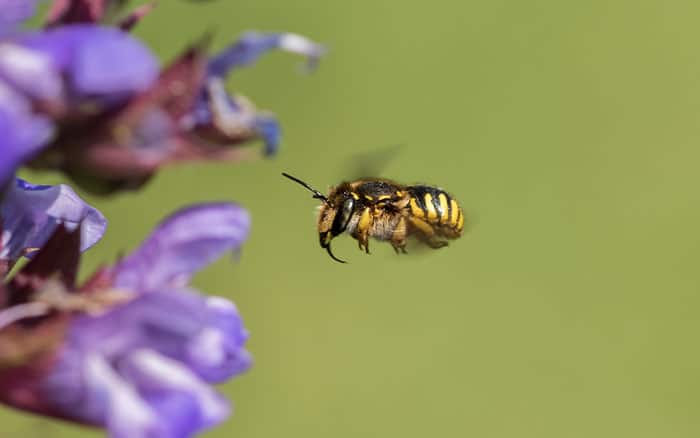Our lawns are hotspots for biodiversity, which is why Plantlife’s campaign proposes that people avoid mowing the lawn in May. No Mow May really is as easy as it sounds…just don’t mow your lawn!
But why should we leave our lawns to grow? Asking Brits to leave their grass to grow has the aim to help bees, butterflies, wildlife, and the environment.
Garden grass visitors
The survey Every Flower Counts highlighted how important the flowers in our lawns are for pollinators. In 2020 it was found that 97 species of pollinators were found on our lawns. This was made up of 26 butterflies and 21 bees, including ashy mining bees and wool carder bees.
It’s been shown that the frequency of mowing has an impact on the number of visitors you’ll have to your grass.

Those lawns that are left unmown attract the highest numbers of pollinators. On the other hand, the lowest number of pollinators were spotted on lawns that were mown just a week before the research took place.
Mowing your lawn for wildlife

Plantlife have recommended mowing in the clever style of a ‘Mowhican’. To do this, cut some areas of the lawn once a month, with other sections left to grow longer.
Having the varying lengths will allow different types of flowers to thrive in different areas for bees and butterflies.
For example, daisies and white clover with thrive in the shorter sections. Meanwhile, oxeye daisies and field scabious will grow in the longer grass. This means, there aren’t just more flowers, but a wider variety of flowers too.
Get involved
This year, the Every Flower Counts survey is taking place from 22nd – 31st May. To get involved, sign up for more information on how to count the types and number of open flowers in a few square metre areas of your lawn.
Then submit your findings and you will be given a Personal Nectar Score which shows the amount of nectar sugar the flowers in your lawn are producing.

By letting your garden grow, you’ll spot many different flowers from daisies and dandelions to creeping buttercups and cuckooflowers.
Wonderful wildlife

With the time that you would mow your lawn, instead use it to do other activities that can attract wildlife into your garden. For example, build a bug house or hotel, construct a log pile, create bird feeders, or stand a bird bath in prime position.
Wildlife will appreciate it and you can enjoy watching and hearing the many sounds of these creatures as they pay your garden a visit.
So, sit back, relax, and enjoy your grass – rather than keeping your lawn mown, give No Mow May a try to benefit the wildlife in your garden.

Leave A Comment